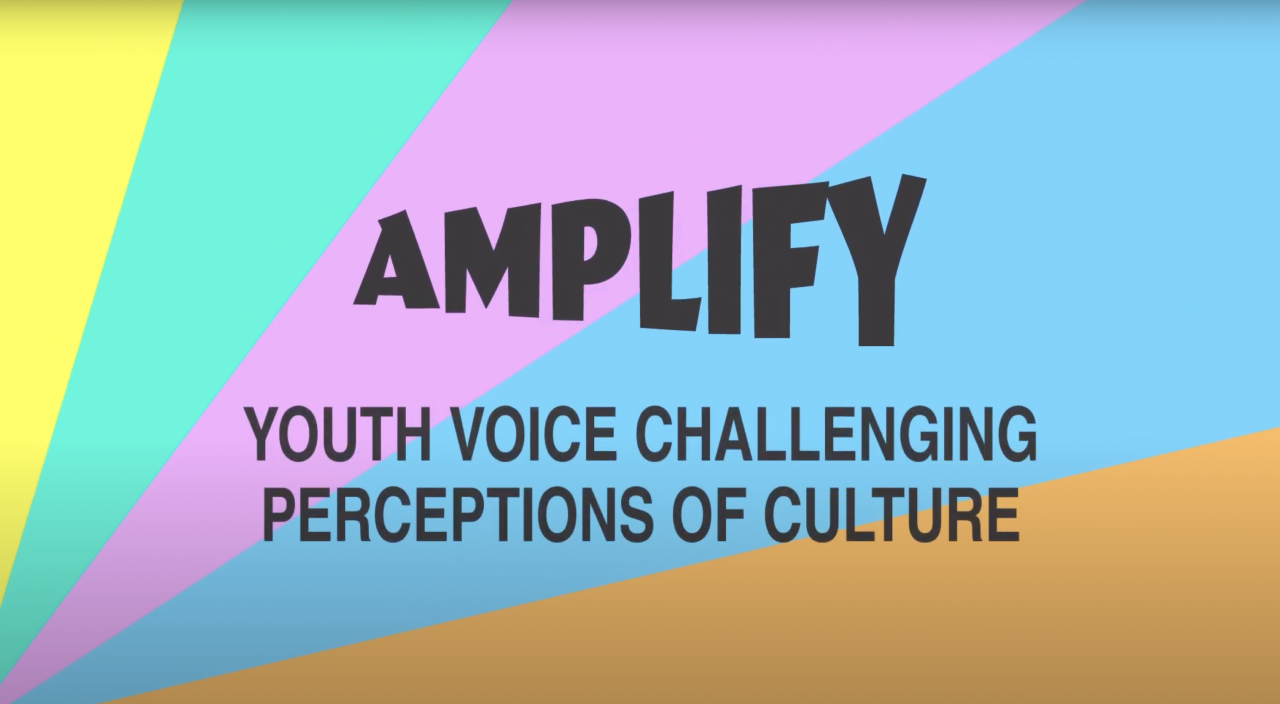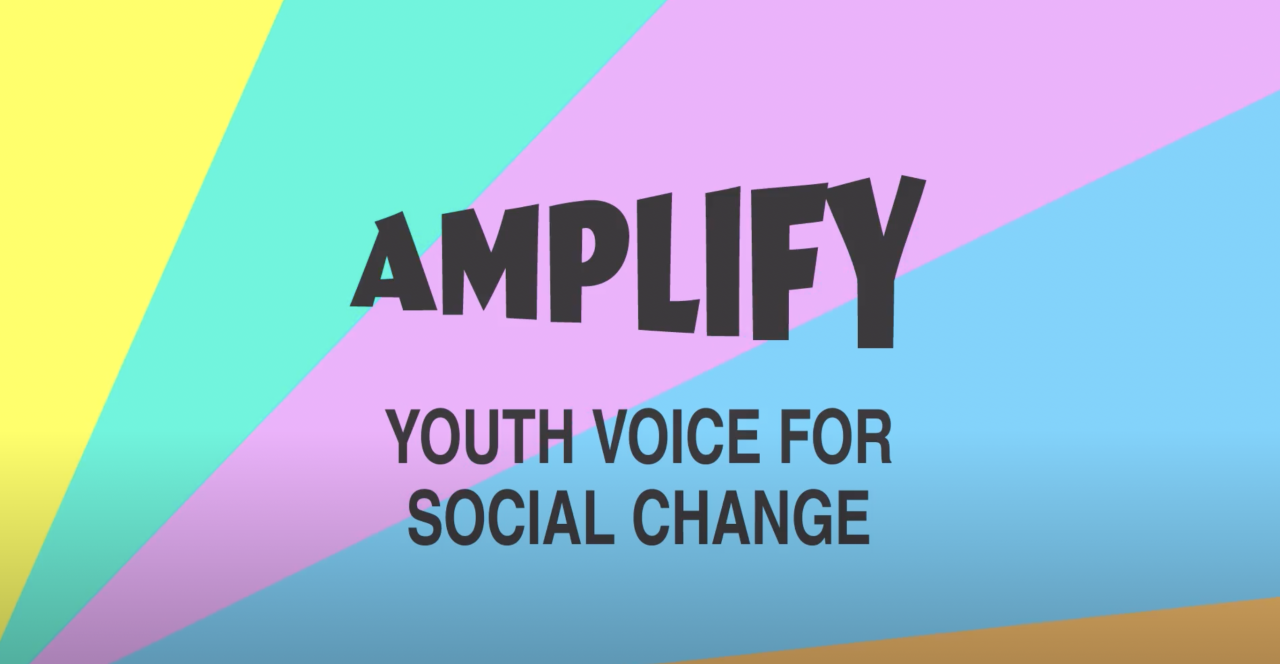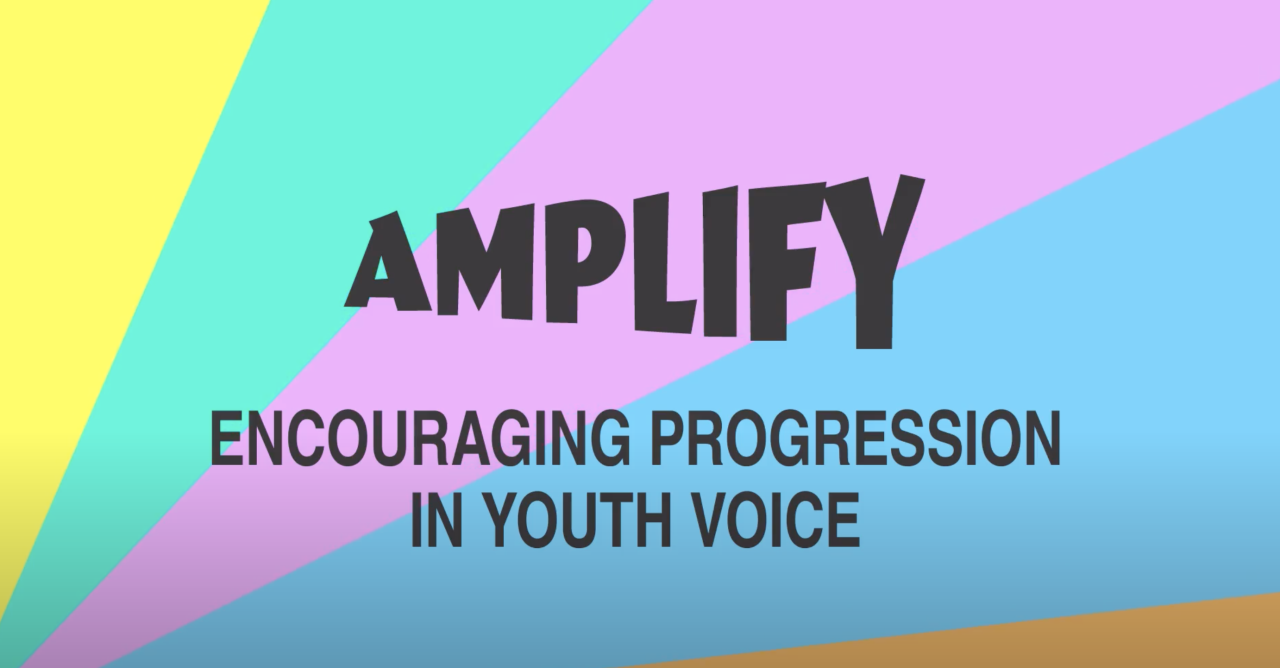Youth Voice Creating Pathways into Work
Empowering the voices of young people to make positive change to their own futures and the futures of others
- Dance
- Visual Arts
- Culture & Heritage
- Young Creatives
The opportunity for children and young people to have their voices heard and acted upon is not just supportive of their own individual learning and development as children, but it is also fundamental in developing the knowledge, skills and confidence to help shape and create pathways into the world of work.
In this episode, Youth Voice Creating Pathways into Work, we will hear from three organisations, the Eco-Hub in Derbyshire, TIN Arts in Durham and Delight in Surrey, who each empower the voices of young people to make positive change to their own futures and the futures of others.
Firstly, we will hear from Lawson, Leo and Jay about how Creative Mentoring at the Eco-Hub in Derbyshire supports young people in vulnerable circumstances to exercise their creative voices and support them with their next steps after education. By working one-to-one with experienced Creative Mentors, they use their creative practice as a way to help young people become “unstuck”, using flexibility, adaptability and youth-led practice to create a greater sense of agency, self-actualisation and self-belief – all vital components when thinking about pathways into work.
We will then hear from Tess and Laura about how TIN Arts Emerging Young Dancers programme in Durham provides bespoke, person-centred and high-quality training, which enables young people to find their next steps into a creative career. They also provide the opportunity for young and emerging artists to advocate for and celebrate creativity as Community Champions, to support more people to get involved in arts and cultural activity in their community. These programmes provide the opportunity for young people, especially those with additional needs, to get into the arts as participants but also as ambassadors and advocates.
Finally, we will hear from Kathryn, Ella, Tasmin and Jess from Delight in Surrey, where they explore how the Kickstart scheme has supported them to work closely with young people in that very important first step into the working world. They provide us with practical insights into how organisations can create the spaces for young people to have their voices heard to create organisational change as well as change in wider work and programmes.
What is it you can do, big or small, to support young people with their next steps and progression routes? How can you ensure young people’s voices are embedded with the support?
Take a look at our resources and links associated with this episode to find more support, information and guidance.
Eco Hub
Lawson: Creative mentors have supported me by encouraging me and helping me to get more involved with the arts and it boost quite a lot of confidence.
So I've done mosaics. I've done willow weaving... Pots, like clay. So working one to one with me, it's– it's special because you have that time to bond and get to know people better. And like where if you're working in a group you have to, like, divide yourself between multiple people where if you working one to one, you can concentrate on that one person and stay focused.
So working creatively with creative mentors has helped me with my next steps by encouraging me to be more open and adventure more in the outsider world and the arts.
I think creative mentoring is important to help people share their voice and opinion and help people grow, because some people stay in their bedrooms and just game all the time. But I personally think more people should be out in the world doing more exciting activities and more in the arts.
I think it's helping me to get to my career because you're meeting more people, new people, and having more time bonding with people and having that time, it's quite important because they're going to have different opinions and everything. So yeah.
Leo: Creative mentoring to me means someone to just help me figure out what it is I actually need to be doing to get what I have in my head out onto the creative thing that I'm doing.
I think working with the creative mentors have made me more confident that I can actually do things, even if I'm not entirely sure how. I can just try it and just see if it works.
I think creativity is important because you're not always going to be able to say things, and there's no way that you can get like emotions out in words as well as if you could
if you're making things and if you're doing things that are creative because it comes from, it comes from the part of your head that doesn't do like writing and words and stuff in the literal sense.
The kind of projects I'm doing is going towards my Bronze Arts Award. I was going to do pottery and clay stuff for it, and now I'm doing self-portraits. So it can kind of just change and whatever, whatever you want to do, basically.
The project that I'm doing is making self-portraits because I've started testosterone because I'm a trans man, and the first one I did was pre testosterone, and now I'm doing them every week or every couple of weeks so I can hopefully see the changes and not only just in my physical face because I'm not, I'm not doing realism, but just in the way that I see myself, in the way that I'm just painting naturally. Just seeing like any changes and stuff in the first couple of months of testosterone.
Jay: I worked with one young person from when they were in Year Six and aspirations in Year Six about what to do in the future, had no idea. And in those early years of secondary school kind of made a decision that they were interested in one job. However, I could see that they had great creative skills and were more of a craftsperson and trying to– trying to open up that idea that this is a valuable and valid job. You can move into that direction.
Now, that young person has just recently finished an apprenticeship working alongside another craftsperson, [and] worked alongside some really good artists as well. And I don't think I'm sure that that young person wouldn't have gone down that road without that creative journey alongside me as their creative mentor and being able to work alongside other artists and other young people exploring skills.
TIN Arts
Our work is so significant because there's very little of it happening. We embrace difference. We aim to discover the barriers and break down the barriers. And working with the young people, we co-produce the solutions and really using their lived experience. So this work has to happen to make the progression that they need out of the grassroots activities that take part and into a profession or a career.
So at TIN Arts, we have lots of projects and what we've noticed is there's no through route, there's no pathways. So we do a lot of work in schools, and we have our own community classes, but we work across the region in schools. And if those children don't live in Durham, where our community classes take place, it's impossible for those young people to come along.
So projects like Emerging Young Dancers, where funding is in place to help with transport, we are able to take young people out of school during the daytime, bring them up to Durham and provide bespoke high quality training,which is something that is not found just out in the community. This then enables the young people to go on and find the next pathway, if you like, into their career.
And one of our young dancers on the Emerging Young Dancers program is called Laura, and it's very exciting at the moment. She has also just become a community champion, and a community champion is somebody who talks about and celebrates the art that they take part in, spreading the word of creative work and TIN Arts and the benefits of it.
And hopefully we're training Laura to be an artist, a professional artist, a dancer, a maker, and also an advocate so that she can have the training that's missing, that's not readily available in any of the further education.
Laura: I'm Laura and I am a dancer at TIN Arts. Working at TIN Arts helps me express myself in different forms of dance, and it's also given me a voice.
I'm working at TIN Arts as a community champion and the role's of being one [sic] is an activity leader and ambassador, an advocate for people with a learning disability or autism who can get into the arts.
Creativity is important for people to express themselves with movements to movements and also we can learn more about themself [sic]. Before I started at TIN Arts, I did not thought of having a career, but now I know I can.
I do choreograph the dance. I do help out with it as well. Indeed it is important to share ideas or else your idea might be better than theirs and that's why you always share your ideas to improve either a dance or just anything.
It is really good to be listened to. Like you learn even more from like listening to if a single person you find– I mean you find so much about them and this gives them a bit of comfort as well, if you're going through a bad time.
Delight
Kathryn: My name is Kathryn Mills. I'm the CEO of Delight. Delight is an arts based learning charity based in Caterham in Surrey. We use high impact creative programs to close the opportunity and attainment gap for children affected by disadvantage.
Ella: Hi, my name is Ella. I joined Delight as their Kickstart Communications Assistant.
I think young employees can bring fresh and relevant perspectives, and that's important because lots of arts and culture organisations are targeted at young people. I've made my voice heard during my placement by saying yes to things and being confident in my ideas and getting involved in company projects.
To ensure the voices and views of young people are heard I'd give the advice to organisations to not being afraid of taking on young people who may have less experience.
Well, at the moment I'm helping out with redesigning the website which is quite a big job. But yeah, it's been really good getting involved with that, and lots of my ideas are being used, which is nice.
Tasmin: I'm Tasmin. I'm working at Delight as a Kickstart Arts Programme Admin Assistant. I feel that young employees can bring energy to arts organisations. They may be involved with different art scenes and they may want to change established ways of doing things.
I've made my voice heard during my placement by speaking up in team meetings and observing programmes and saying how they can be improved.
The advice that I would give to organisations to make sure that young employees are heard is to take the experience and skill sets that they have and try and foster that to improve that, take ideas on board from young employees, and also do regular team meetings so that they have the opportunity to speak.
Jess: So I feel that young employees can bring a lot to arts organisations. They have given us a different voice, a fresh voice. They've brought new energy into the office and into the team. And for us as an arts organisation that works with schools, it's really important for us to have a young person's perspective.
It's really important to us that the voice of the Kickstarters is heard within our organisation. In terms of advice for organisations to make sure that young people's voices are heard, I think all of the usual things like team meetings and regular check-ins are really important, but I feel it's really crucial to actually make sure that you're asking them and to make sure that the set up is comfortable for them to really answer that question as well.
Eco Hub
Creative Mentoring is a one-to-one approach to working with children and young people aged 5-25 living in vulnerable circumstances, pioneered by Eco Hub – Derbyshire County Council/The Amber Factory.
TIN Arts
Based in Durham, TIN Arts seek to create a world in which everybody has access to the arts by removing barriers and increasing access to high quality dance and performing arts. Their Emerging Young Dancers programme works with 11-18 year olds with learning disabilities.
Delight
Delight, based in Caterham, Surrey, delivers quality arts-based programmes that broaden children’s horizons, self-esteem and aspirations, and better engage them in learning. They also give schools the opportunity to work directly with professional arts organisations and cultural venues.
Megan: My experience of being a Kickstarter
A reflective blog by a Kickstart for The Mighty Creatives
A blog by Jonah, a youth board member for The Mighty Creatives
Creative Mentoring: A perspective from Claire Parker
An blog that provides background on Derbyshire Virtual Schools Creative Mentoring (Eco Hub)
Creative Mentoring – A Local Authority perspective by Kim Johnson
A second blog looking at the Virtual School offering
Creative Mentoring with Children in Care: An Enhanced Review
A research paper that evaluates creative mentoring, looking specifically at the key attributes, its impact, and what is unique about the programme [PDF download]


